2012 Hyundai Genesis Coupe Top Speed
The 2012 Hyundai Genesis Coupe 2.0T is a Rear-wheel drive Coupe. It can accommodate up to 4 passengers. It has 2 Doors and is powered by a 2.0L L4 turbo DOHC 16-valve engine which outputs 210 hp @ 6000 rpm and is paired with 5 speed automatic transmission with manual mode gearbox. The 2012 Hyundai Genesis Coupe 2.0T has cargo capacity of Liters and the vehicle weighs 1498 kg. In terms of ride assists, the 2012 Hyundai Genesis Coupe 2.0T has stability control and traction control in addition to anti-lock brake system (ABS). The vehicle has an optional engine as well It offers and. Safety features also include Driver-side front airbag and Passenger-side front airbag. The front suspension is Independent front suspension while the rear suspension is Independent rear suspension. The car also features a It has 18'' alloy wheels as standard. Electronic features include Cruise Control. For convenience, the car has Power windows and Power door locks. There is also a remote keyless entry feature. Moreover, the car has. The steering wheel has audio control buttons. In terms of performance, the car has 229 N.m of torque and a top speed of 218 km/h. The 2012 Hyundai Genesis Coupe 2.0T accelerates from zero to 60 mph in 7.9 seconds and hits quarter mile at 15.9 seconds. Fuel consumption is 10.5 L/100km in the city and 6.7 L/100km in the highway. The car price starts at $ 24,899
0-100 MPH in 5.2 Seconds 2012 Hyundai Genesis 5.0 V8 0-60
2012 Hyundai Genesis R-Spec 0-60 MPH
2012 Hyundai Genesis Coupe 2.0t acceleration
Drag Race Toyota Aurion 2012 vs Hyundai genesis coupe 2010 with supersprint muffler
2012 Hyundai Genesis sedan 3.8 0 - top speed
2012 Hyundai Genesis Used Price Estimates
Estimates based on a driving average of 12,000 miles per year
| Used Condition | Trade In Price | Private Party Price | Dealer Retail Price |
|---|---|---|---|
| Outstanding | $ 9,257 | $ 11,571 | $ 13,382 |
| Clean | $ 8,671 | $ 10,823 | $ 12,490 |
| Average | $ 7,500 | $ 9,327 | $ 10,705 |
| Rough | $ 6,329 | $ 7,831 | $ 8,921 |
Its price and humble lineage might make the 2012 Hyundai Genesis seem more of a competitor to the likes of the Buick LaCrosse, Chrysler 300, Ford Taurus or Toyota Avalon. But it's actually more of a bargain-priced rival to premium striders like the Infiniti M or even German midsize sedans.
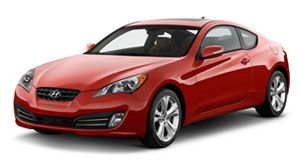
In this company the Genesis shows only minor deficiencies. It lacks an all-wheel-drive option and its braking distances are a bit long, for example. The new R-Spec model also lacks a degree of ride and handling sophistication you'd find in the European models it's targeting. But these are minor problems compared to what is likely the largest obstacle the Genesis faces in the marketplace: whether or not buyers will embrace the badge on its trunk lid.
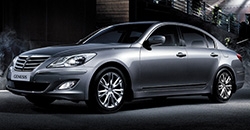
The 2012 Hyundai Genesis is a full-size, rear-wheel-drive luxury sedan available in 3.8, 4.6, 5.0 and 5.0 R-Spec trim levels (the numbers denote engine displacement).
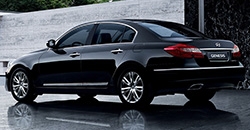
The Genesis 3.8 comes standard with 17-inch wheels, automatic headlights, foglights, heated mirrors, a sunroof, keyless ignition/entry, cruise control, dual-zone automatic climate control, an eight-way power driver seat (includes power lumbar), a four-way power passenger seat, heated front seats, leather upholstery, a tilt steering wheel, an auto-dimming rearview mirror, Bluetooth and a seven-speaker sound system with CD player, satellite radio, auxiliary audio jack and an iPod/USB interface.
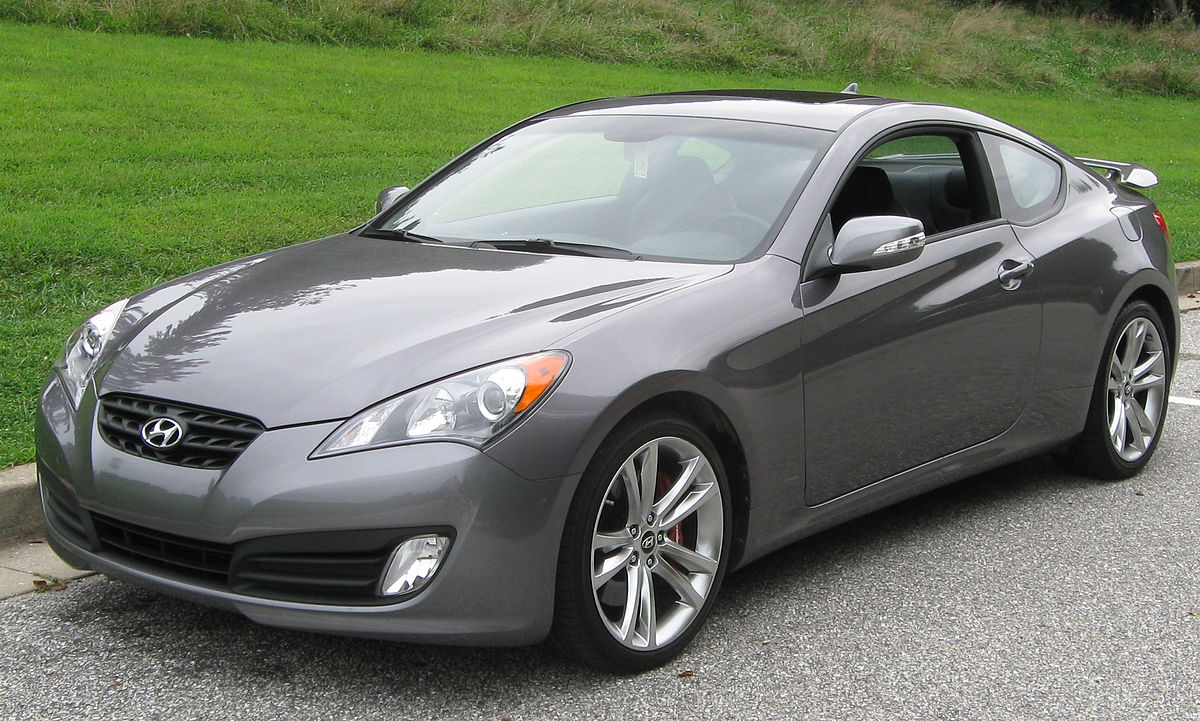
The Premium package adds 18-inch wheels, a sunroof, automatic wipers, power-folding side mirrors, a power tilt-and-telescoping steering wheel, leather dash and door trim, driver memory functions, a power rear sunshade, a rearview camera, a navigation system with real-time traffic, a 7-inch touchscreen interface and a 14-speaker Lexicon surround-sound system with a CD/DVD player.
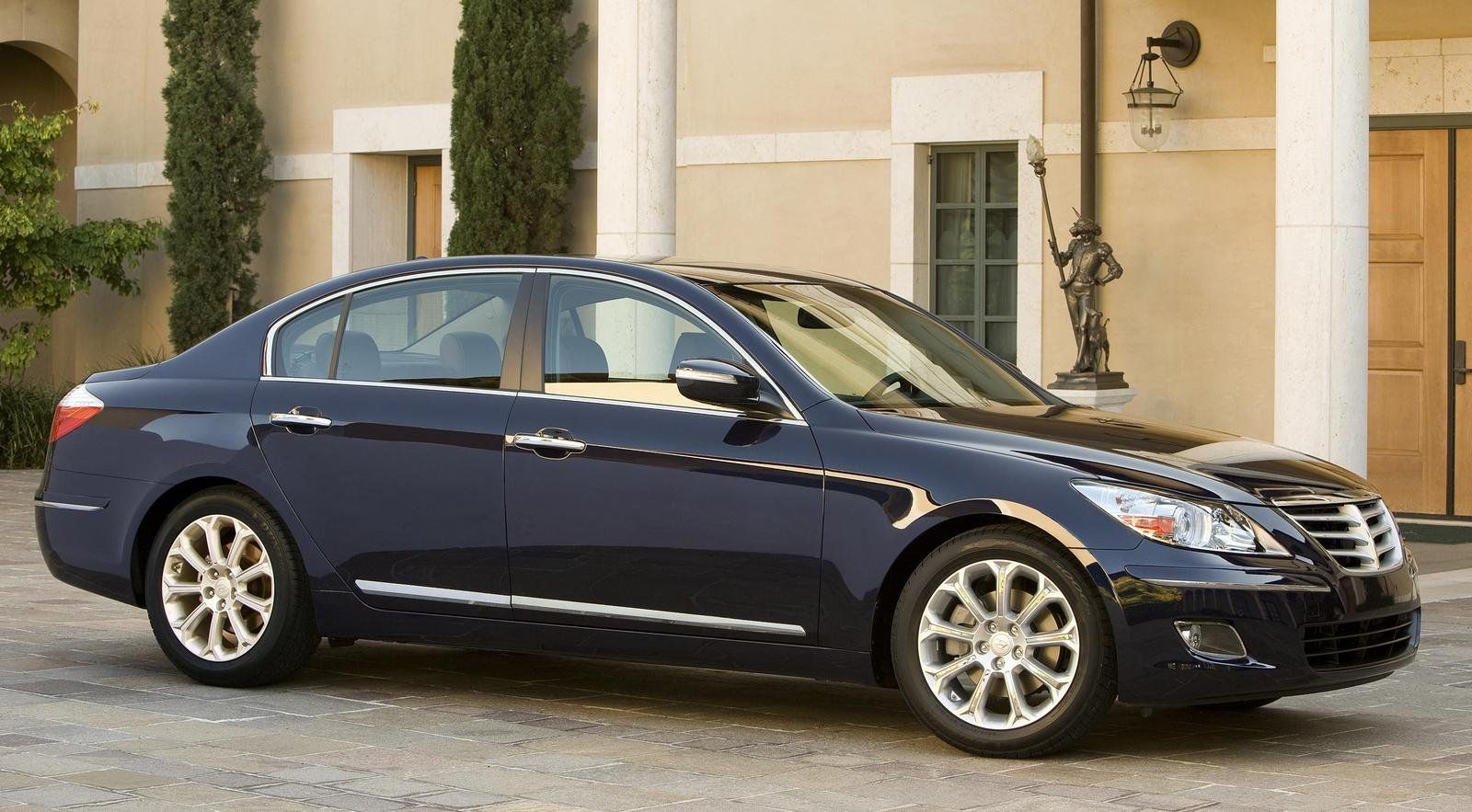
The Technology package adds or supplements Premium package equipment with adaptive HID headlights, front and rear parking sensors, adaptive cruise control, a lane-departure warning system, an electronic parking brake, upgraded leather upholstery, a ventilated driver seat, heated rear seats, an enhanced Bluetooth system, a rotary-knob based multimedia interface with 8-inch display, and a 17-speaker Lexicon audio system with HD radio and an in-dash six-CD/DVD changer.
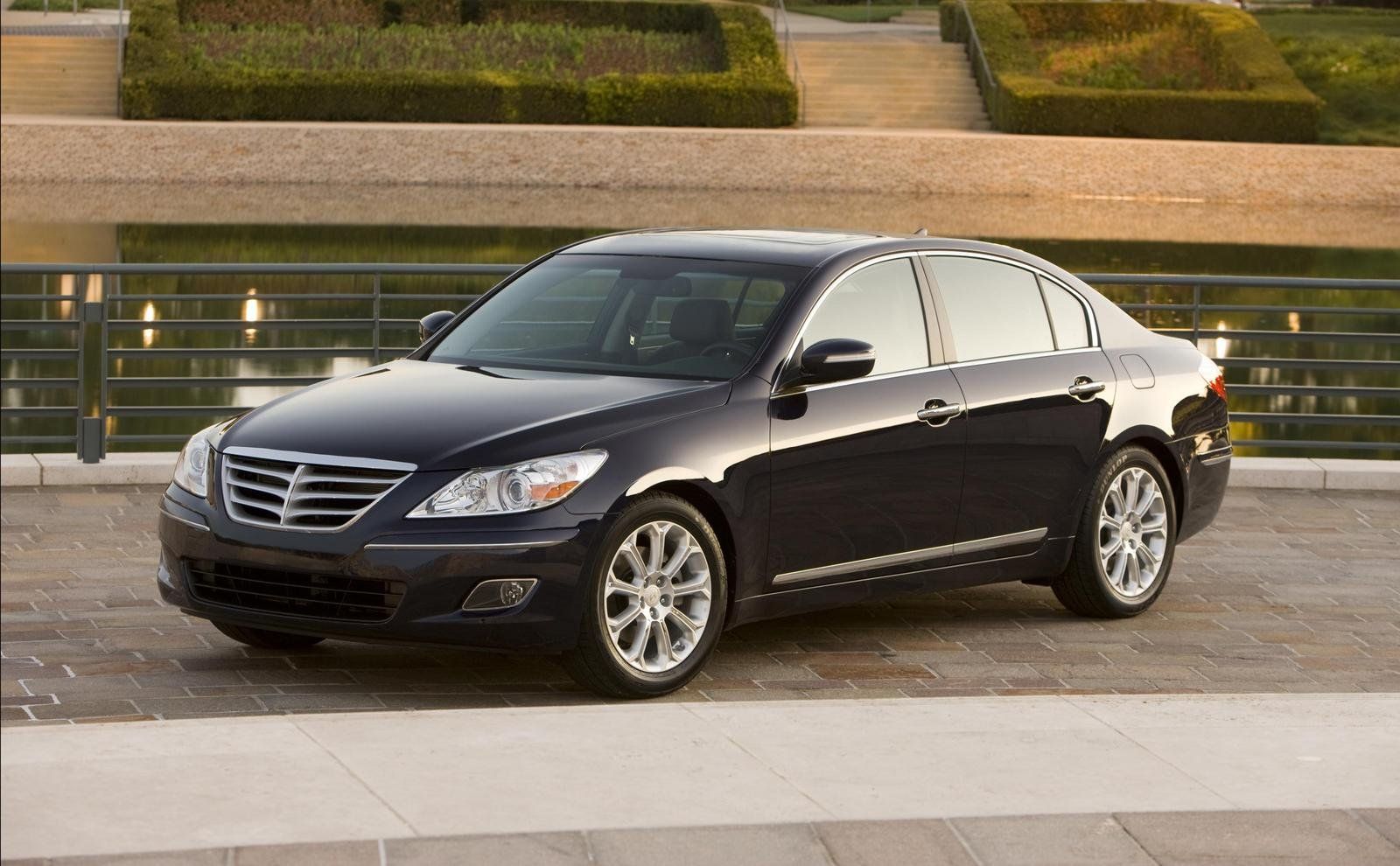
The Genesis 4.6 includes Premium and Technology features as standard equipment but substitutes a wood-trimmed steering wheel for a leather-wrapped piece. The Genesis 5.0 is identically appointed, with the exception of the more powerful engine. The Genesis 5.0 R-Spec incorporates all Premium and Technology package features, plus 19-inch wheels and sport-tuned transmission, suspension and steering. High-performance summer tires are optional on the R-Spec.
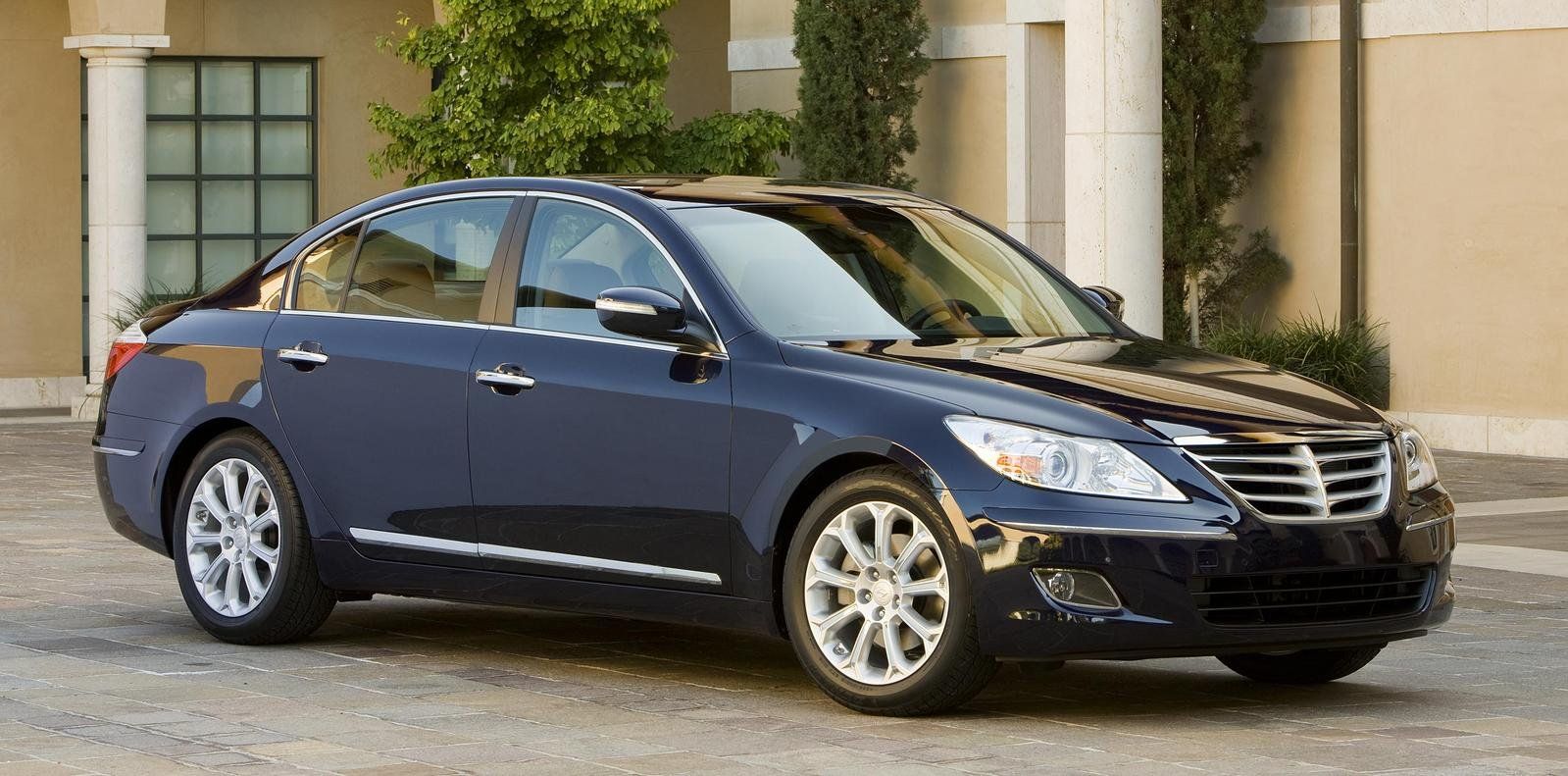
The 2012 Hyundai Genesis 3.8 gets a 3.8-liter direct-injected V6 that produces 333 hp and 291 pound-feet of torque. Like every Genesis, rear-wheel drive and an eight-speed automatic transmission with manual shift control are standard. In performance testing, this engine took the Genesis from zero to 60 mph in 6.4 seconds. EPA-estimated fuel economy is 18 mpg city/28 mpg highway and 22 mpg combined.
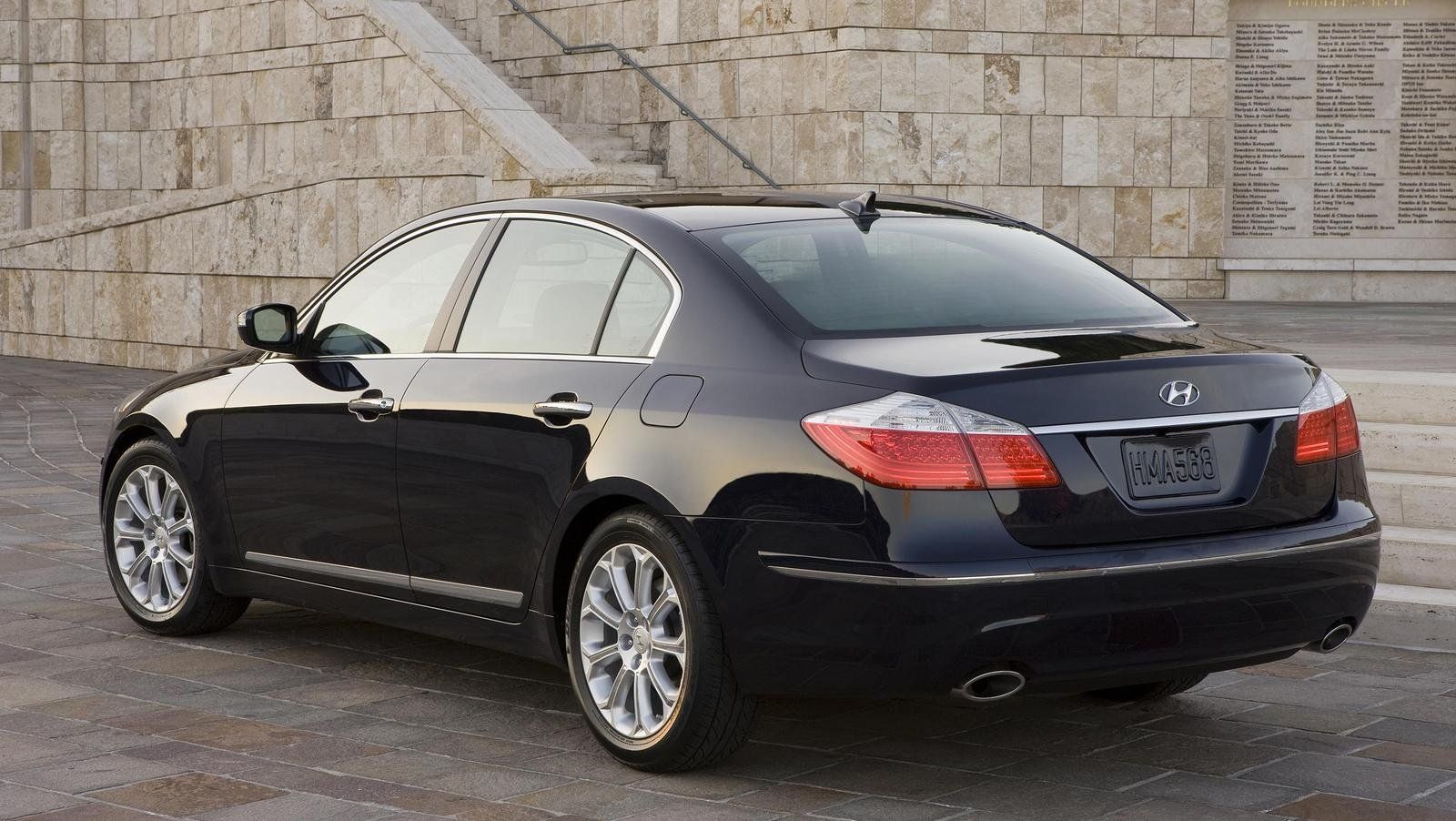
The Hyundai Genesis 4.6 features a 4.6-liter V8 good for 378 hp and 324 lb-ft of torque with regular gas, and 385 hp and 333 lb-ft of torque with premium. Estimated fuel economy is 16/25/19.
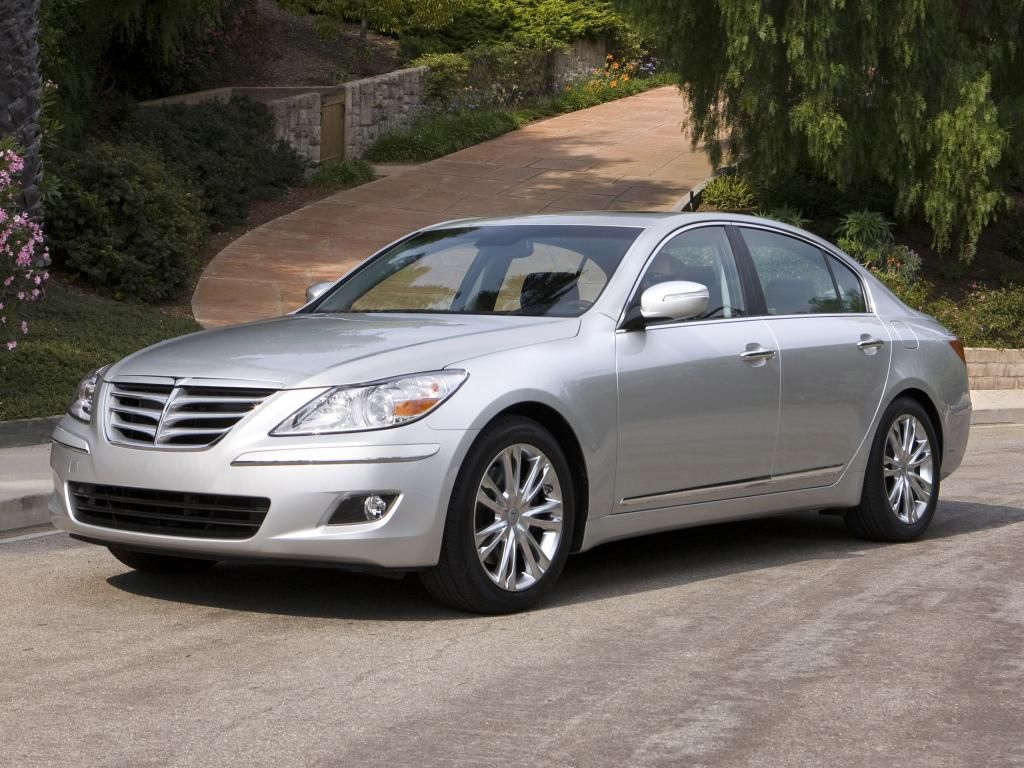
The Hyundai Genesis 5.0 and R-Spec join the lineup with a 5.0-liter direct-injected V8 making 429 hp and 376 lb-ft of torque. In performance testing, the R-Spec hit 60 mph in 5.3 seconds. EPA-estimated fuel economy is 16/25/18.
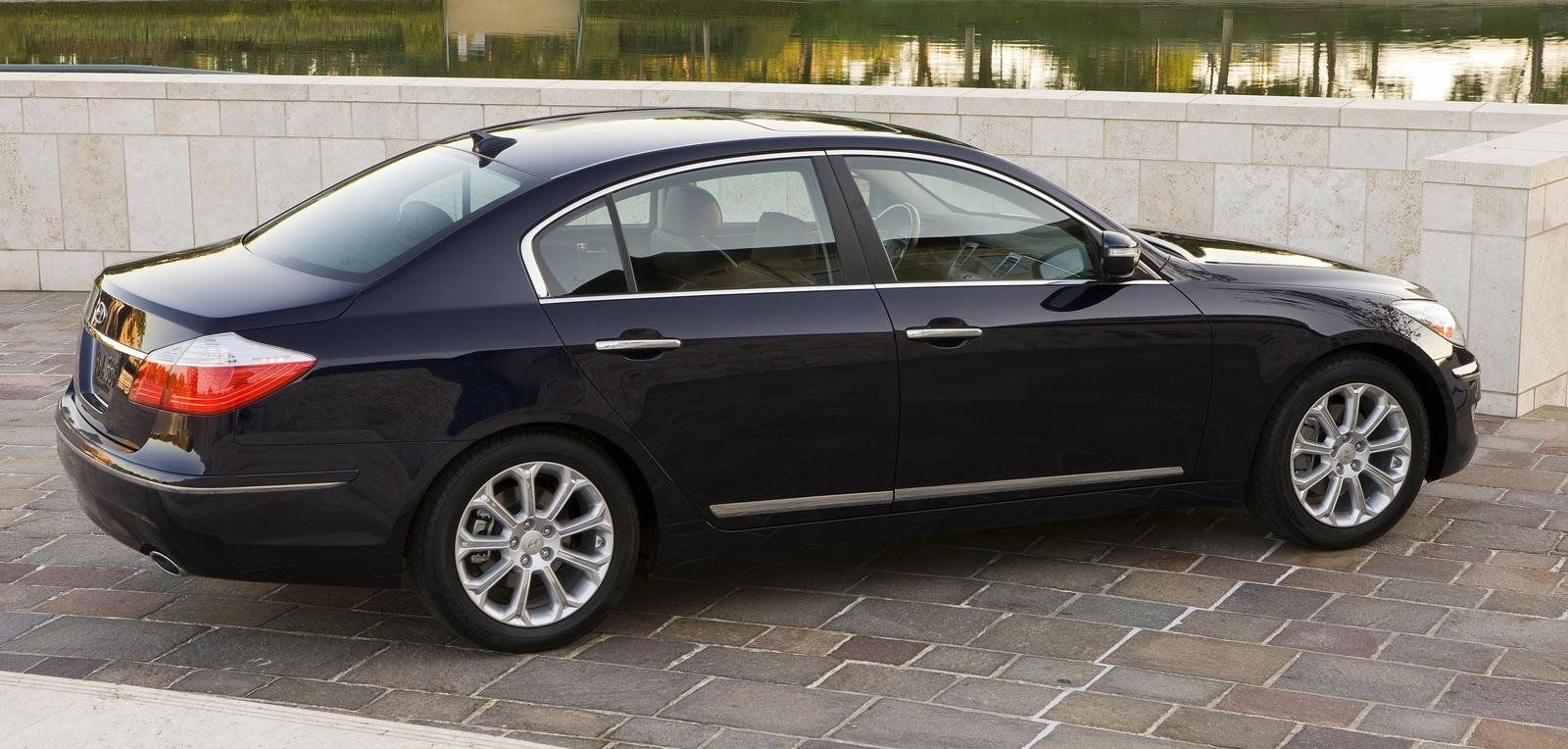
The 2012 Hyundai Genesis comes standard with antilock brakes with brake assist, traction and stability control, active front head restraints, front and rear side airbags and side curtain airbags. Parking sensors, lane-departure warning and a rearview camera are optional on the 3.8 and standard on the 4.6 and 5.0 R-Spec. In brake testing, the Genesis 3.8 came to a stop from 60 mph in 117 feet, while the 4.6 stopped in 124. Both are average distances, but the R-Spec's 112-foot stop with its optional summer tires is excellent.
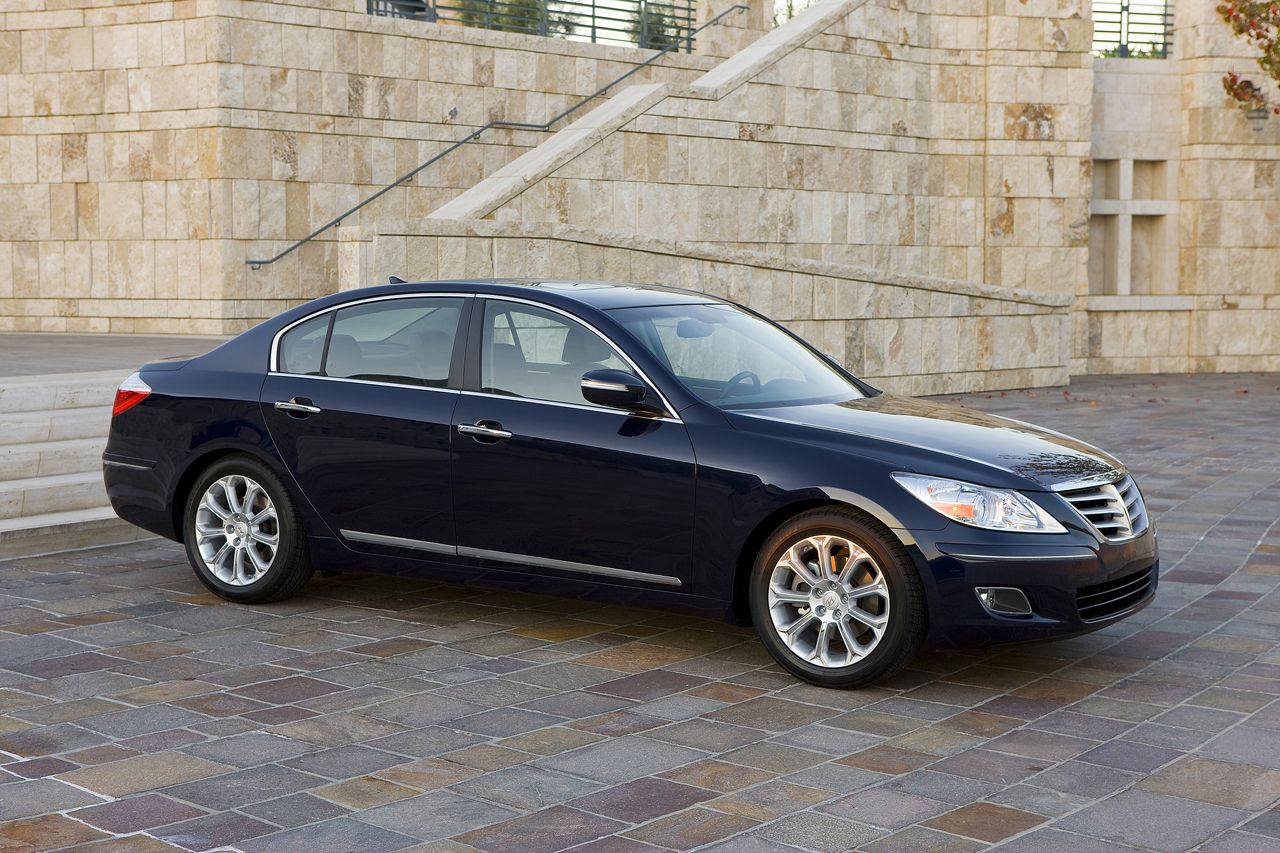
The Insurance Institute for Highway Safety, meanwhile, awarded the Genesis the best possible score of "Good" in its frontal offset, side and roof strength tests.
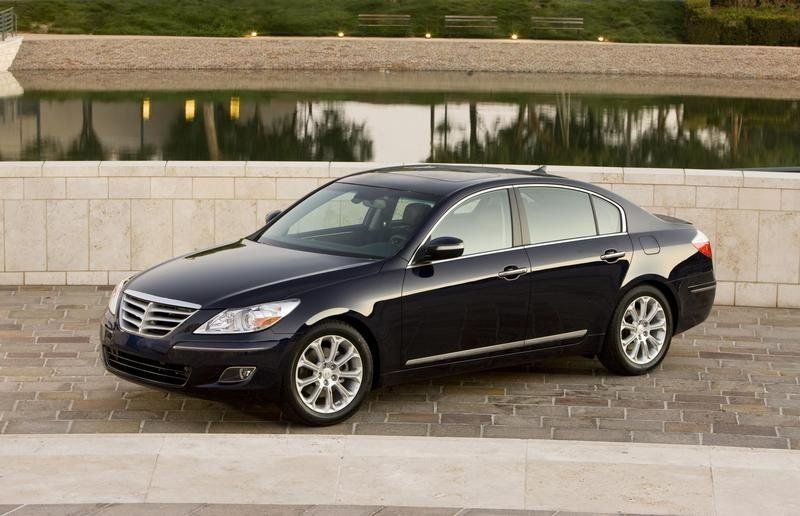
The soft ride of most 2012 Hyundai Genesis models is a good indicator of the car's luxury intentions, and thankfully it lacks the disconnected float that characterizes some other sleepy cruisers. When called upon, the Genesis can perform evasive maneuvers predictably and with little drama. Steering doesn't provide much feedback, but it's reasonably precise and suits the car's purpose. Thanks to extensive sound insulation, the Genesis is also a remarkably quiet car.
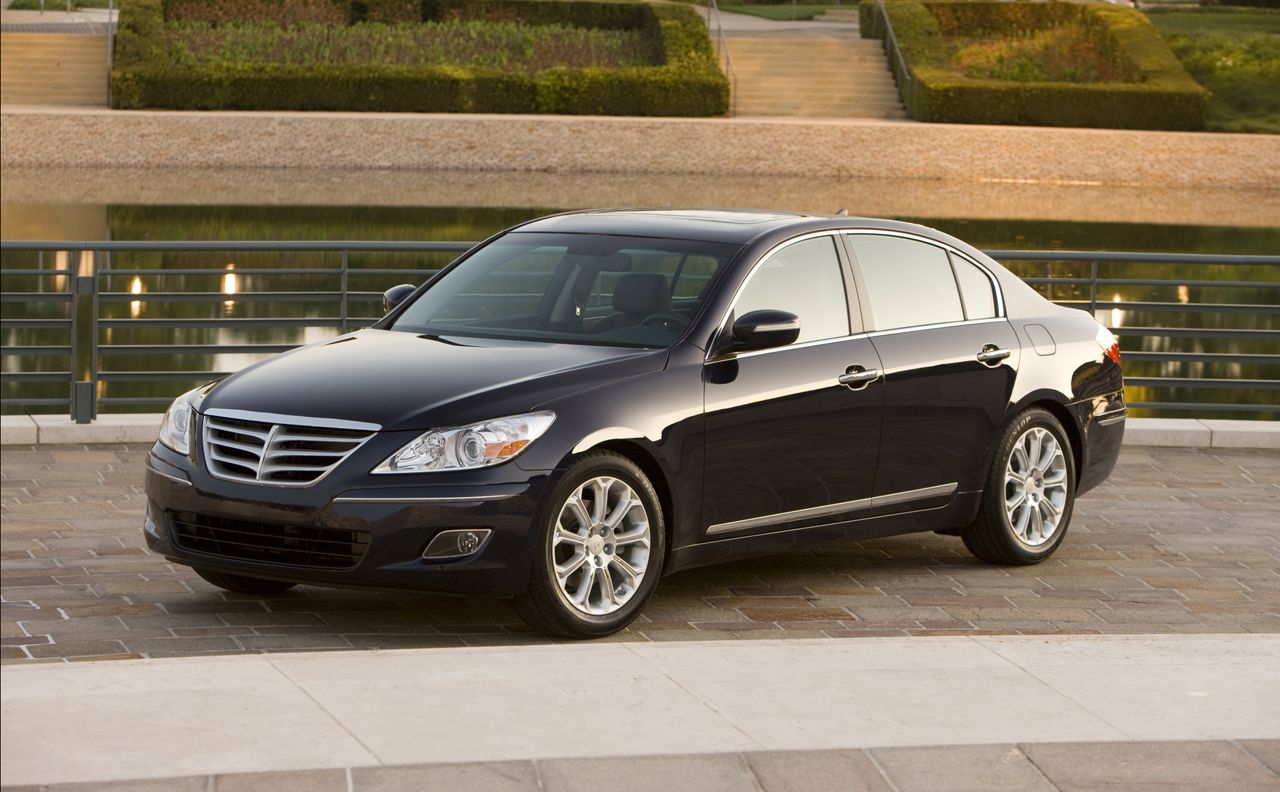
Engine power also more evenly matches other premium brands, with Genesis V6 and V8 models delivering smooth and linear acceleration. The new 5.0 models are just downright fast, matching the acceleration potential of V8-powered sport sedans that cost thousands more. However, unlike its regular Genesis counterparts, the R-Spec suffers a firm ride over broken pavement that sets it apart in a bad way from those aforementioned sport sedans.
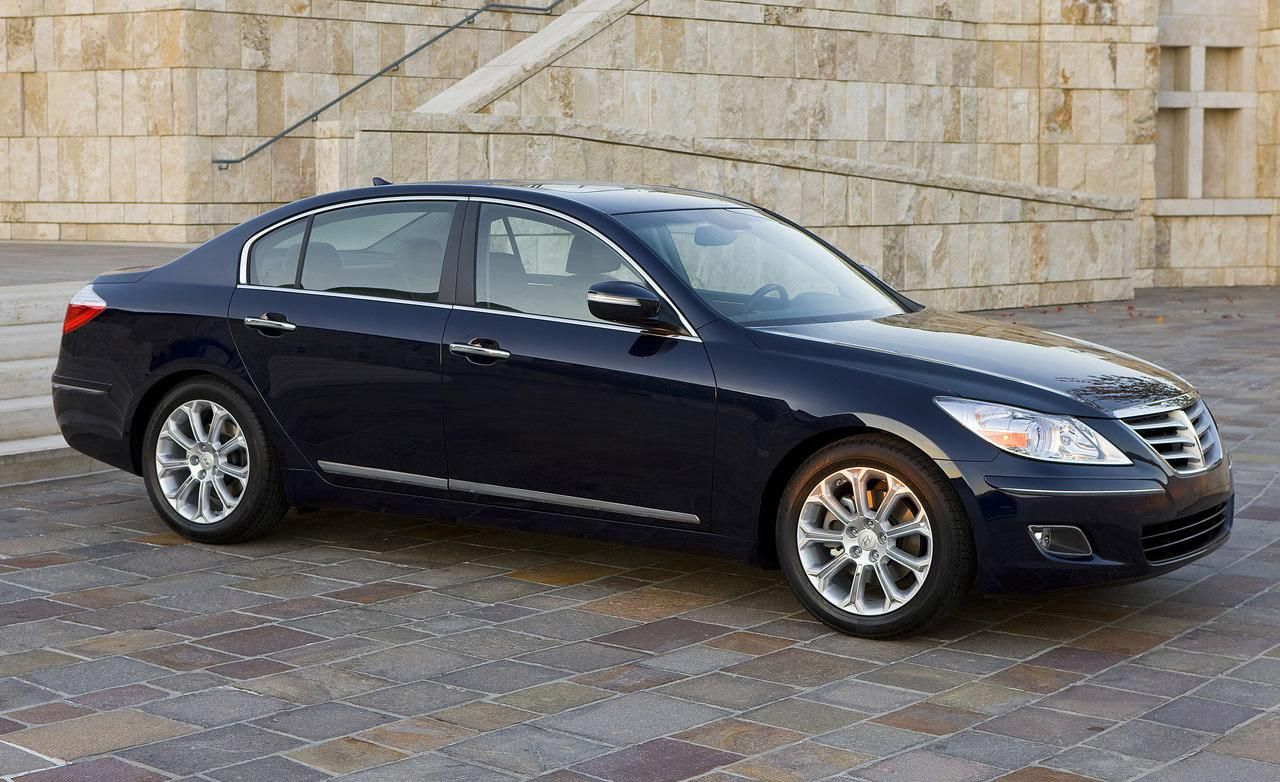
If not for the sweeping "H" logo on the Genesis' steering wheel, most people would likely think they're driving a Lexus. This is especially true of the fully loaded model, which offers a full complement of modern comforts and conveniences wrapped in interior materials that feel rich and well-built. The Genesis cabin clearly takes aim at the Japanese luxury standard-bearer, as even the crisp, bright electroluminescent gauges have a Lexus-like appearance.
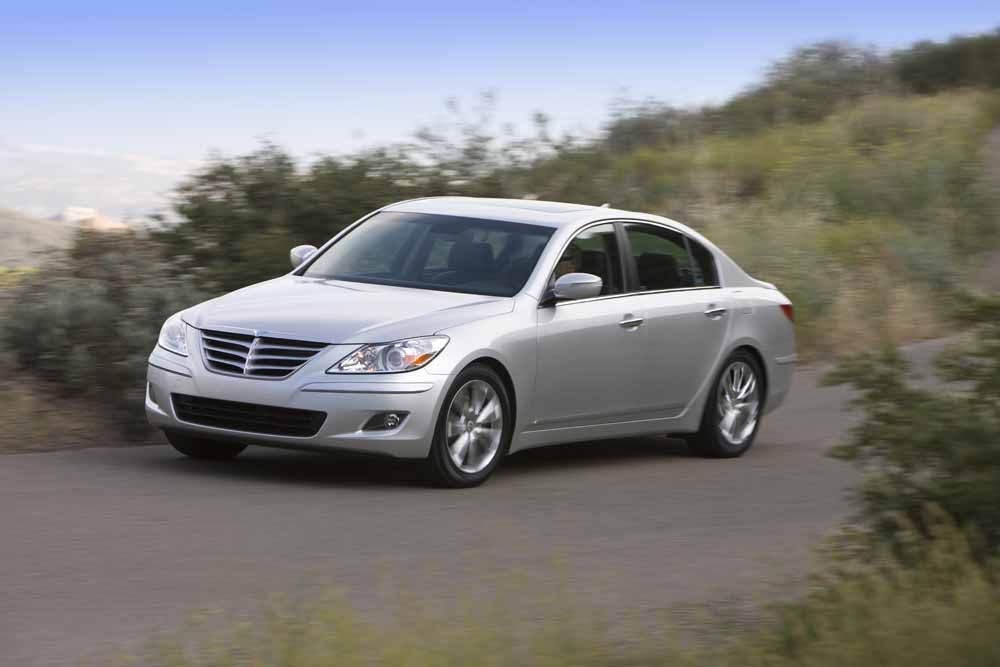
While there is visually little to distinguish the 2012 Hyundai Genesis 3.8 from the 4.6 model, save for the wheels and rear badging, there is a definite difference felt from behind the steering wheel. Where the 3.8's 333-horsepower V6 is more than enough to move the 2012 Hyundai Genesis sedan with sufficient gusto, it's the 385-horsepower afforded by the 4.6's V8 that we think is the real value deal. The 4.6's suspension and springs seem stiffer to us, allowing it less lean in the corners and a firmer ride. The V8 cars' electro-hydraulic power steering also feels more responsive. Stopping is swift and sure thanks to large four-wheel anti-lock disc brakes (ABS) with brake assist and electronic brake distribution (EBD). The four-piston fixed-caliper front brakes on the 4.6 models are especially notable. If performance is what you seek first and foremost, then the 429 horses released by the new 5.0-liter V8 in the 5.0 R-Spec is the way to go. Costing only a few thousand more than the 4.6, the R-Spec delivers up the kind of driving dynamics more commonly associated with BMW or Audi sedans.
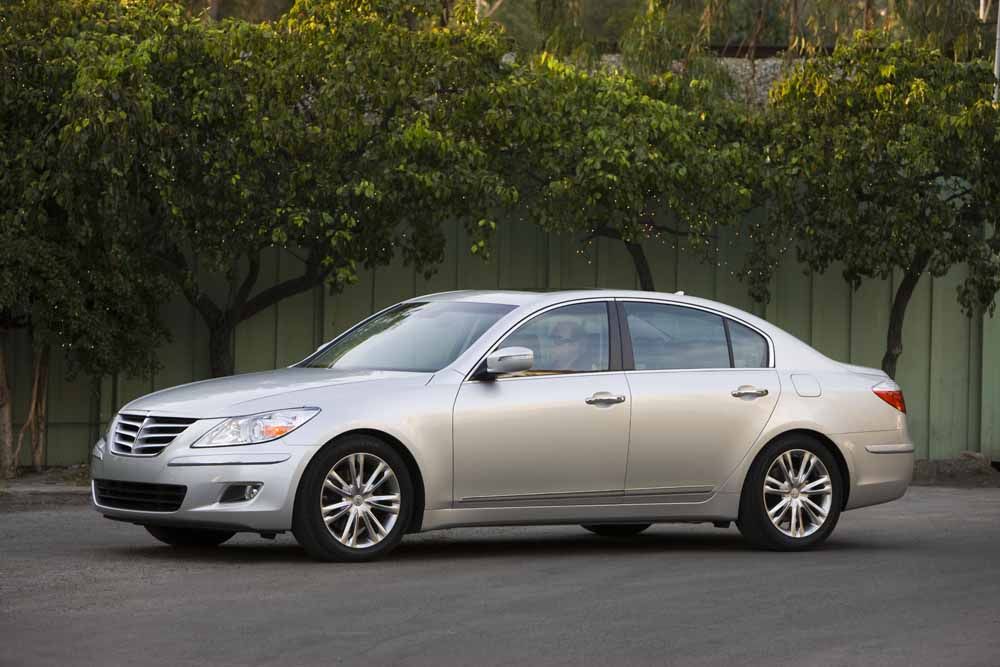
Lexicon Audio SystemThe sound from this 7.1 Discrete audio system is not only powerful, it is beautifully nuanced. It's one of the best factory sound systems we've heard in a vehicle of any price. Auxiliary USB and iPod inputs allow drivers to fully control and charge iPods directly from the head unit.Overall InteriorThe interior of the 2012 Hyundai Genesis sedan is truly outstanding. Extravagant use of genuine leather and wood plus meticulous fit-and-finish make for an interior worthy of a top luxury brand.
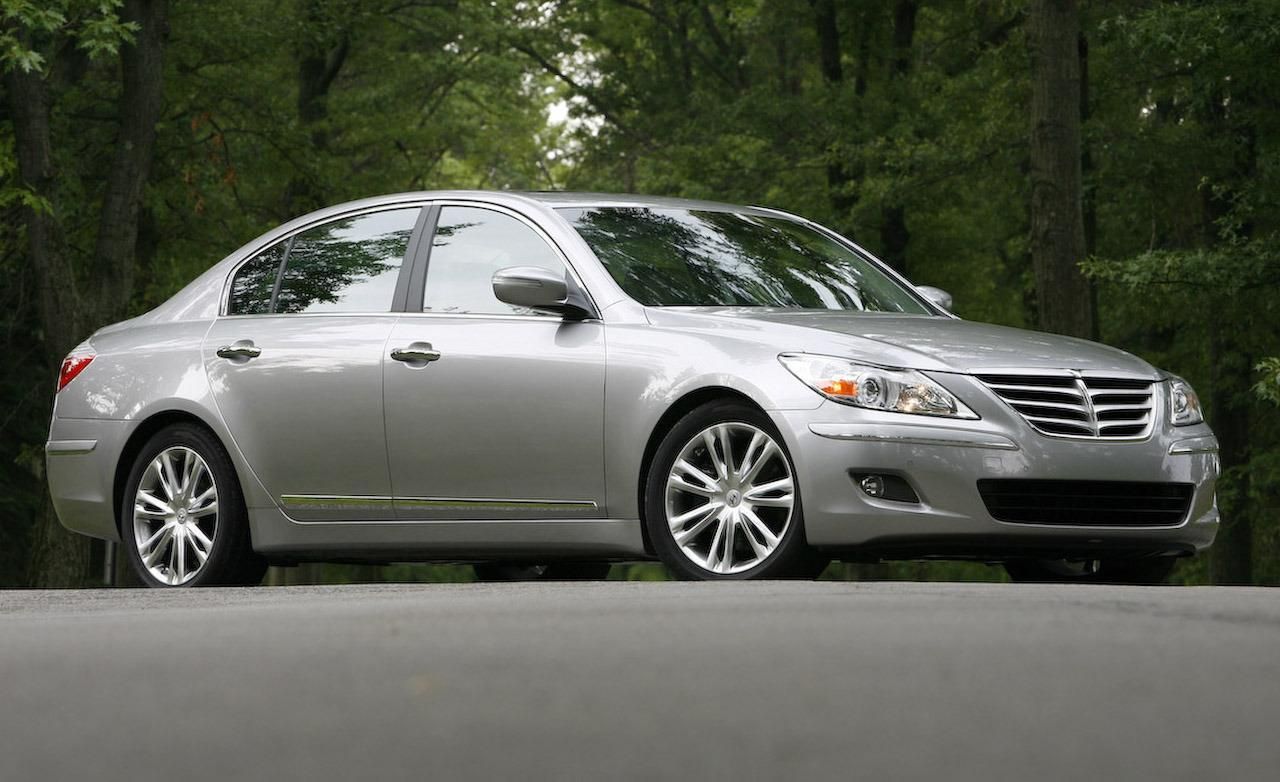
We've driving a lot of premium luxury sedans and to our well-trained eyes the interior of the 2012 Hyundai Genesis sedan is exceptionally well done. With leather covering not only the steering wheel but the dash as well, the quality of materials and execution of design is better than some premium brands we've driven. Leather-covered front seats can be heated or cooled, and the rear seating space is equally as appealing, with abundant room for passengers' legs, hips and heads. Where Hyundai could have gone overboard with the dash design, they instead choose a simple, elegant layout that is easy to view. Unfortunately, Hyundai decided to emulate the BMW and Audi model of using a console-mounted joystick controller to operate the navigation and audio functions. While the placement of the controller is convenient to the driver, its operation is not always intuitive.
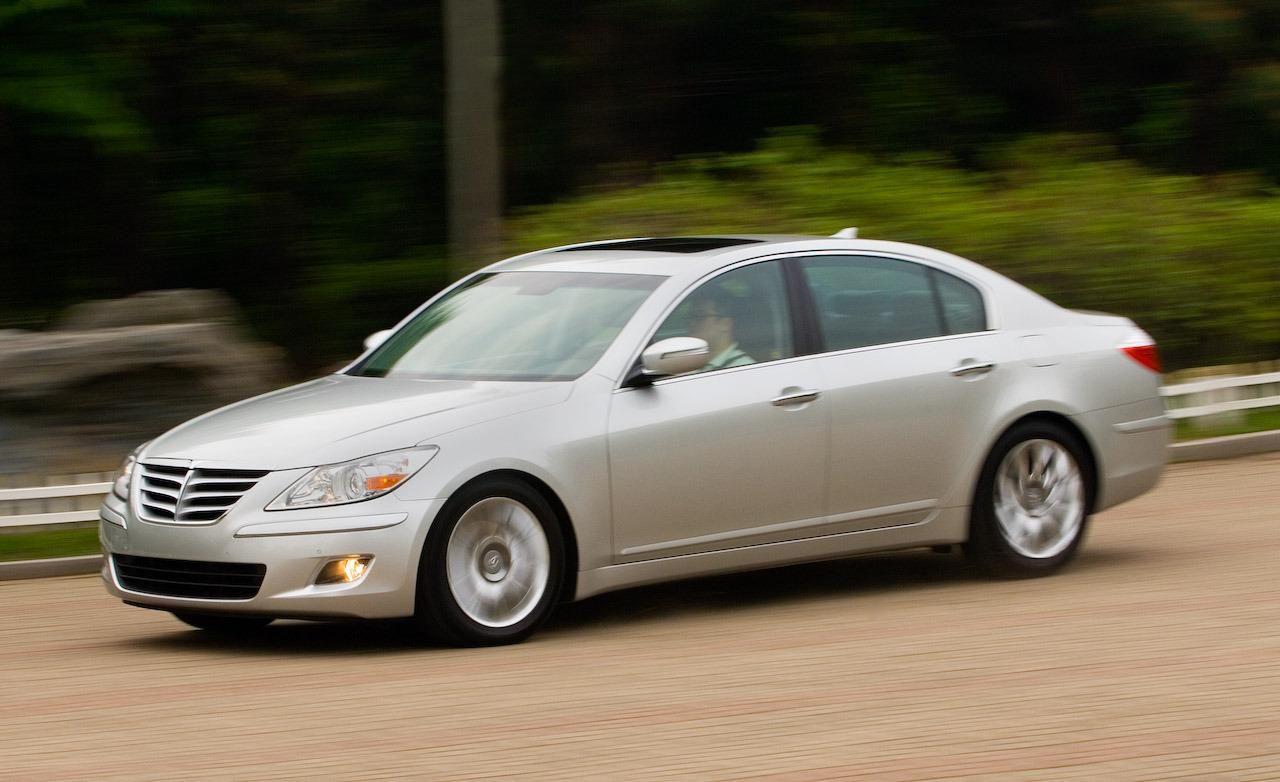
The 2012 Hyundai Genesis sedan is conservatively styled yet thoroughly appealing. The 2012 Genesis sedan's styling mimics a number of luxury brands. From the front, the Hyundai Genesis' grille and headlamps clearly pay tribute to Mercedes Benz, while the LED daytime running lamps are a nod to Audi. Around back, the Hyundai Genesis' trunk and tail lamps echo of BMW and Lexus. There is no shortage of chrome trim, which adorns the grille, trunk, window surrounds, door handles and bumpers. New for 2012 are power-folding side mirrors with integrated turn signals, new wheel designs and dual asymmetrical exhaust tips. Added all together, the 2012 Hyundai Genesis sedan looks similar to high-end luxury brands, and it definitely doesn't look like a Hyundai. That may be the one thing that helps it break through to the premium sedan shopper.

In the Hyundai tradition the 2012 Hyundai Genesis four-door sedan provides a rich assortment of standard features. These include the handy proximity key with alarm and entry system, power windows with front auto-up/down with pinch protection and remote fuel door, hood and trunk releases. Other standards include 1-touch power tilt-and-slide sunroof, leather seats, woodgrain accented dash and Bluetooth hands-free mobile phone interface and USB/iPod auxiliary inputs. The wealth of safety items includes electronic stability control (ESC), advanced dual front airbags, front and rear seat-mounted side-impact airbags, roof-mounted side-curtain airbags for both front and rear outboard seat occupants. Unlike the other safety features, the 2012 Genesis' electronic active head restraints are not required by government regulations.

For everyday enjoyment, the prime option is the Lexicon-branded audio system featuring LOGIC 7 technology which is optional on the V6 trim and standard on the V8 and R-Spec. Rolls-Royce is the only other automotive brand to offer a Lexicon system, and the surround-sound, 11-channel, 17-speaker extravaganza that produces more than 500 watts is certainly of super-luxury-brand quality. It features both HD and Satellite Radio, and in navigation-equipped models it includes a 40-gigabyte hard drive. Another key option on the V6 is the automatic front lighting system that allows the xenon high intensity discharge headlights to swivel automatically for better visibility when cornering. The 2012 Hyundai Genesis sedan is available in three trim levels: 3.8, 4.6 and 5.0 R-Spec. The names come from its available engines: the 333-horsepower, 3.8-liter V6; the 385-horsepower, 4.6-liter V8; and the 429-horsepower, 5.0-liter V8.
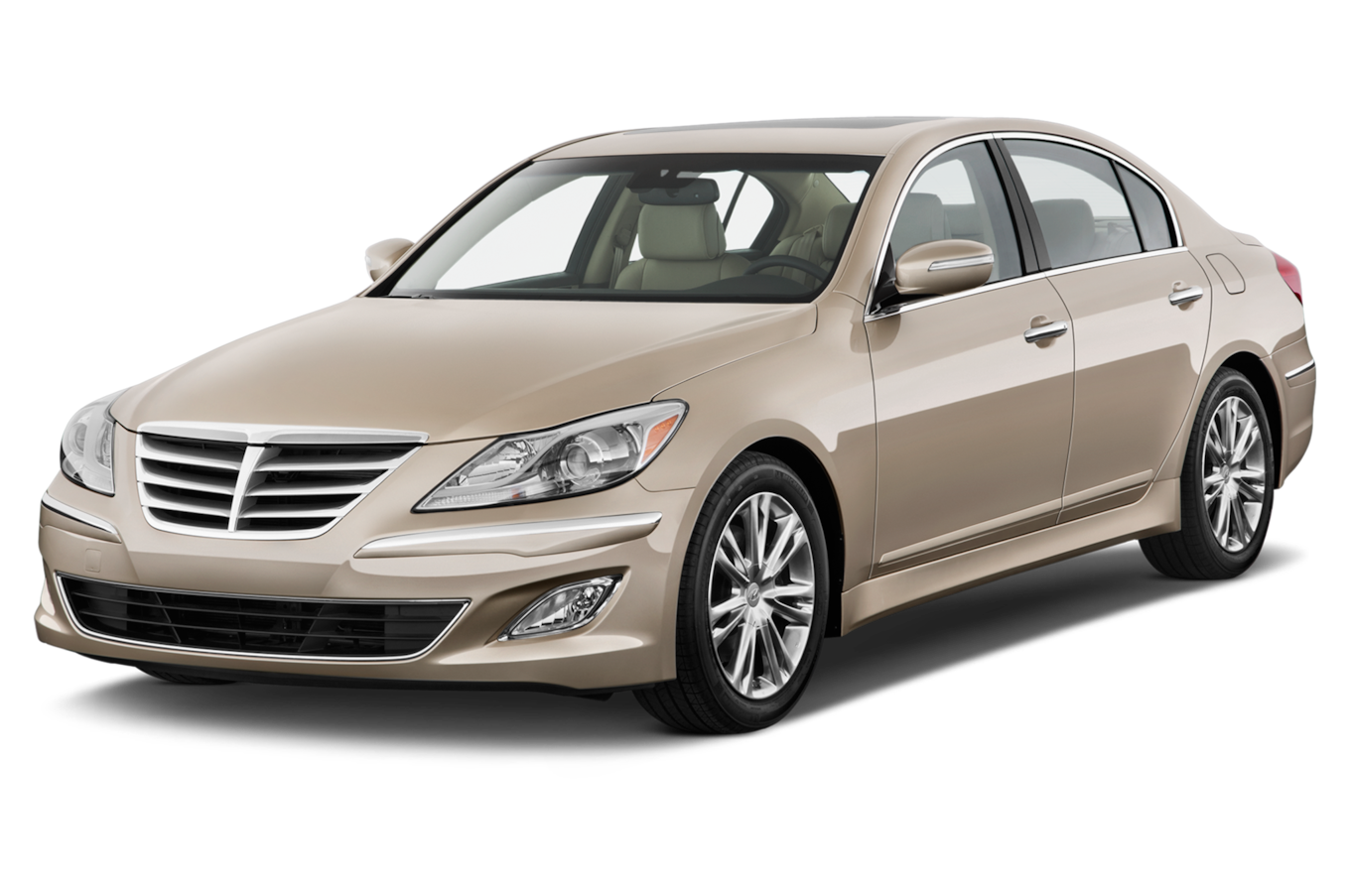
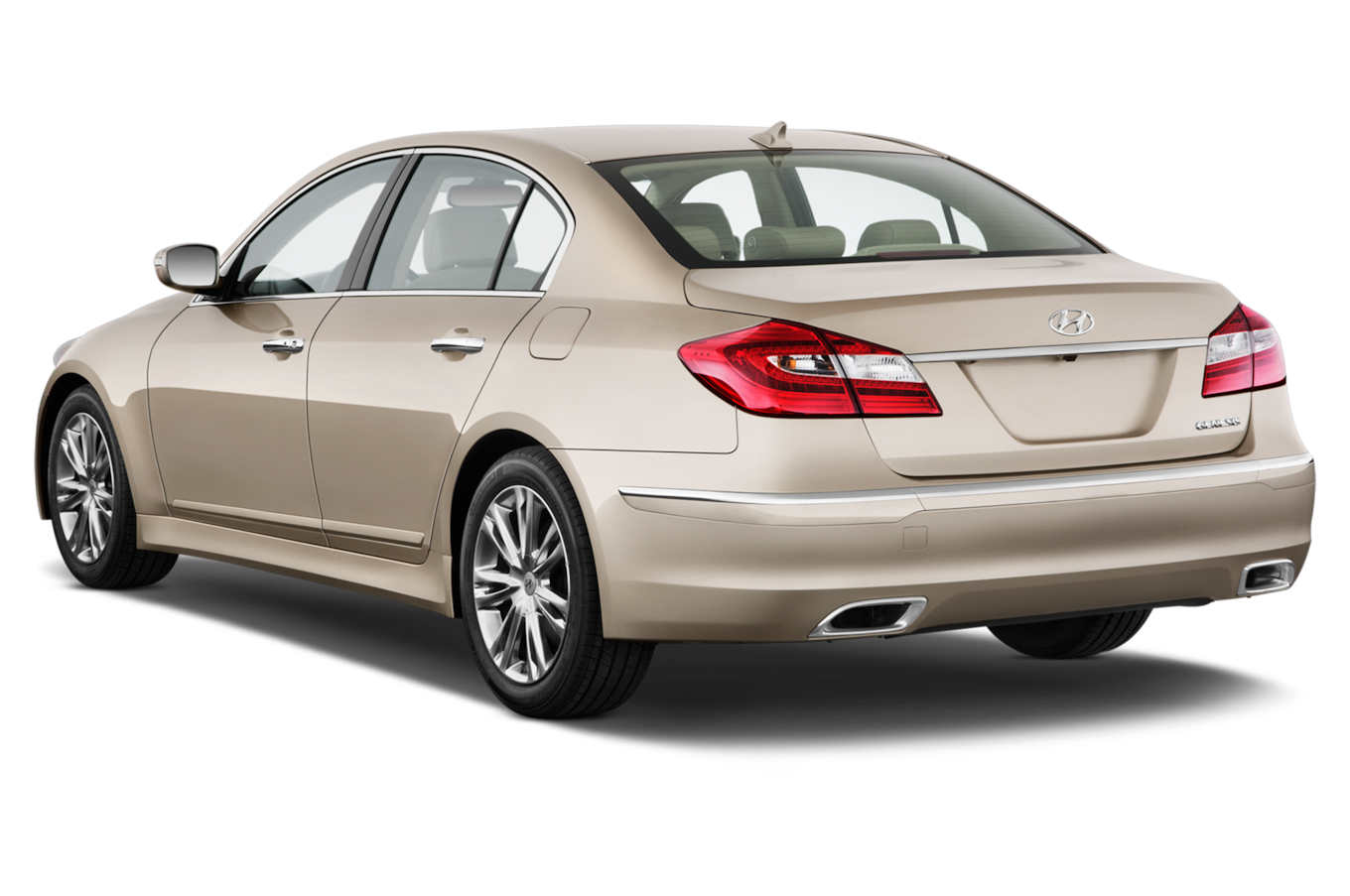
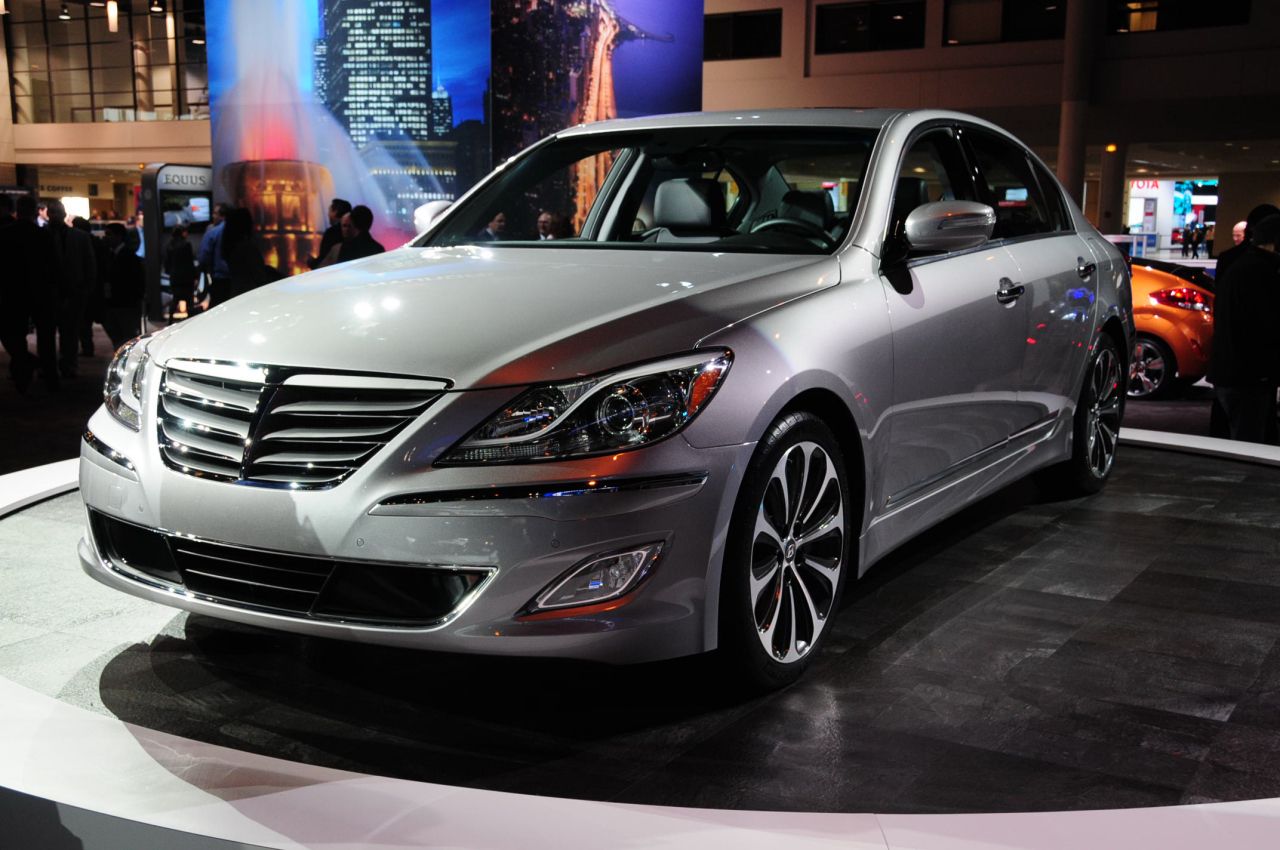



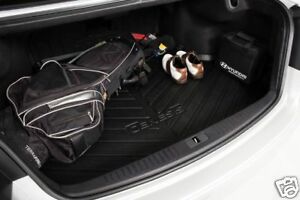


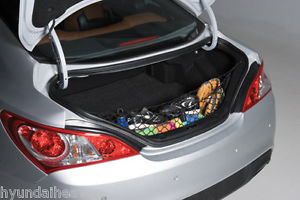


Hyundai Genesis is a brand new model from the South Korean car maker.
Hyundai is a self-grown South Korean brand of automobiles established in the 1960's. Presently part of the Hyundai Kia Automotive Group, the motor company has registered a steady growth over the past few decades, having successfully entered European and American markets. The assembly lines operated by the company were built to match its size, the manufacturing facility in Ulsan being able to produce 1.6 million units per year.
Founded by Chung Ju Yung, born into a poor family of farmers, the Hyundai Motor Company became the first Korean car producer. The grounds for founding a car company could not have been more welcoming since post-war years in Korea brought forth a series of odd politics one of which stated that automobile imports were better than having a Korean car brand.
Yung was quick to fill the void, having raised enough capital for the investment from his very profitable construction business, opened in 1947. One year after its birth, the Hyundai Motor Company signed a technology-share agreement with Ford in 1968. Soon after Hyundai's access to Ford's resources, the first Hyundai car was developed: the Cortina. This model was quickly followed by the release of the Pony, Hyundai's first entirely Korean designed and built model. Its blueprints however, were not all-Korean, the company having used Japanese technology from Mitsubishi to develop the car.
Japanese constructors at the time had already developed wide range of models, many of which were exported worldwide, mainly to the US and South America. The Pony model was the first Hyundai to be shipped overseas in 1975.
However, Hyundai would only cross US borders later, in 1986, with the release of the Excel. The subcompact car was an instant hit with its fairly small price tag accounting for most of its popularity. The Excel was such a hit that it sold in over 100,00 units in the first seven months.
This was the last automobile that Hyundai produced before resorting to their own technology in 1988. The Sonata was their first born, a mid-seize car that marked the beginning of a new era. Despite the steps the company had taken into building a strong brand image, the reputation Hyundai had previously collected was lost because of poor quality and reliability complaints.
As soon as the 90's came, Hyundai was short of air on American territory, struggling for one last gasp. Instead of retreating, the company made massive investments in new design and technology. By the time the new millennium came, the company had already reinstated as one quality car manufacturer.
Sales increased once more and with them so did the buyer's confidence in Hyundai. The sudden shift in consumer behavior was made possible by eliminating all worries regarding the vehicle's reliability through the introduction of a 10 year warranty to US sold vehicles only. Since few companies could top that, Hyundai quickly earned a spot in the world's top -10 car manufacturers.
Hyundai is currently operating in 193 countries, selling vehicles through approximately 5,000 showrooms and dealerships. Sales have also aided image growth, the brand having entered the first 100 most valuable brands of the world. Its recent history is strongly connected to investments in technology and ample advertising campaigns. Indeed, communication is one of Hyundai's inherent elements, best described by their logo: the stylized H is in fact a representation of two men (brand-buyer) shaking hands.
2012 Hyundai Genesis Coupe Top Speed
Source: https://www.mycarspecs.com/car/2012-hyundai-genesis-coupe-20t

Komentar :
Posting Komentar